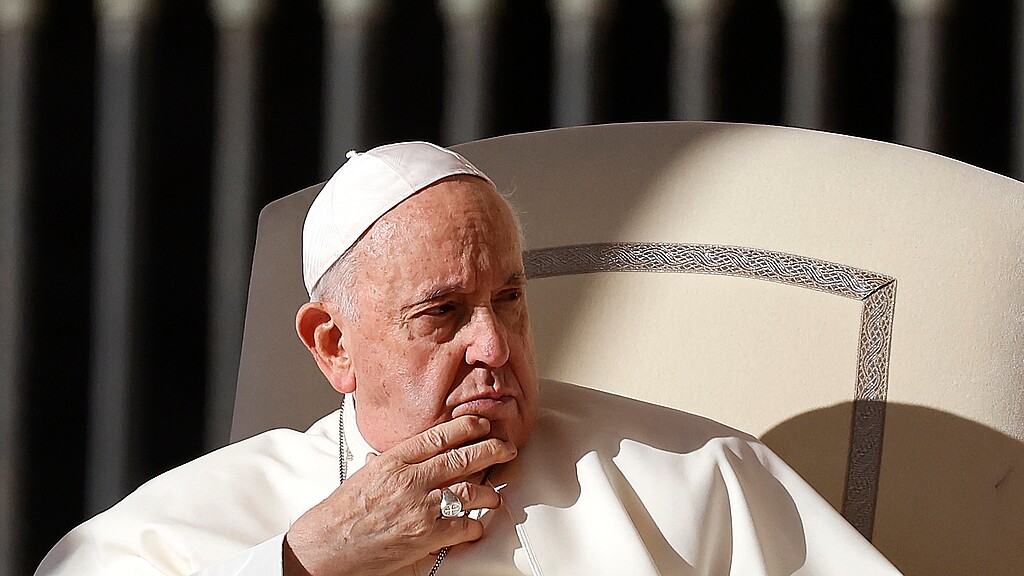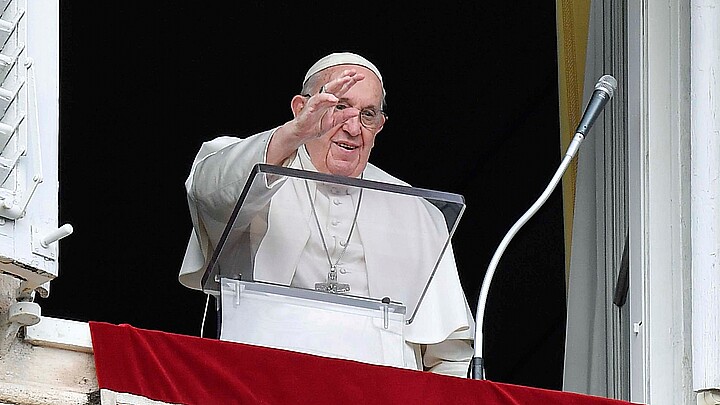Politics
Vatican document condemns abortion, surrogacy and gender ideology while defending the rights of LGBTI people
A new document approved by Pope Francis denounces practices such as abortion, surrogacy and “gender ideology,” while defending the rights of LGBTI people

April 9, 2024 10:04pm
Updated: April 10, 2024 9:20am
The Vatican published this Monday a new text titled “Dignitas Infinita” (infinite dignity), in which it addressed issues related to respect for human dignity. The document, approved by Pope Francis, denounces practices such as abortion, surrogacy and “gender ideology,” while defending the rights of LGBTI people.
The document also condemned other issues such as human trafficking, the plight of migrants, poverty, war, sexual abuse and violence against women.
Surrogacy
According to the text, published by the Dicastery for the Doctrine of the Faith, surrogacy contradicts the fundamental dignity of every human being.
“First and foremost, the practice of surrogacy violates the dignity of the child. Indeed, every child possesses an intangible dignity that is clearly expressed—albeit in a unique and differentiated way—at every stage of his or her life: from the moment of conception, at birth, growing up as a boy or girl, and becoming an adult,” the document says.
“Because of this unalienable dignity, the child has the right to have a fully human (and not artificially induced) origin and to receive the gift of a life that manifests both the dignity of the giver and that of the receiver. Moreover, acknowledging the dignity of the human person also entails recognizing every dimension of the dignity of the conjugal union and of human procreation. Considering this, the legitimate desire to have a child cannot be transformed into a “right to a child” that fails to respect the dignity of that child as the recipient of the gift of life.”
Abortion
Likewise, the Church document said it considers that abortion in mentality reflects an “extremely dangerous” crisis of morality.
“The acceptance of abortion in the popular mind, in behavior, and even in law itself is a telling sign of an extremely dangerous crisis of the moral sense, which is becoming more and more incapable of distinguishing between good and evil, even when the fundamental right to life is at stake,” the document says. “Given such a grave situation, we need now more than ever to have the courage to look the truth in the eye and to call things by their proper name, without yielding to convenient compromises or to the temptation of self-deception.”
Gender Theory
For the first time, the Vatican speaks out explicitly against the “gender theory,” also calling it dangerous because it erases differences in its claim to make everyone equal while also eliminating the anthropological basis of the family.”
“Respect for both one’s own body and that of others is crucial in light of the proliferation of claims to new rights advanced by gender theory. This ideology ‘envisages a society without sexual differences, thereby eliminating the anthropological basis of the family,’” the document says.
“It needs to be emphasized that ‘biological sex and the socio-cultural role of sex (gender) can be distinguished but not separated.’ Therefore, all attempts to obscure reference to the ineliminable sexual difference between man and woman are to be rejected
The Dignitas Infinita also warned that any sex change intervention “risk threatening the unique dignity the person has received from the moment of conception.”
Despite these warnings, the document also emphasized that LGBTI people must be respected and denounced the fact that “in some places, many are imprisoned, tortured and even deprived of the good of life solely because of their sexual orientation.”
Digital Violence
The text also condemned the rise of “digital violence” in society and how easy it has become “to endanger a person’s good name with fake news and slander.”
While the document says that technology has helped promote progress in some positive ways, it warns that the digital world is not a real one, but that it is deceiving millions across the globe and tempting them in harmful ways that hurt themselves and others.
“The digital environment is also one of loneliness, manipulation, exploitation, and violence, even to the extreme case of the ‘dark web.’ Digital media can expose people to the risk of addiction, isolation, and gradual loss of contact with concrete reality, blocking the development of authentic interpersonal relationships,” the document warns.
“New forms of violence are spreading through social media, for example, cyberbullying. The internet is also a channel for spreading pornography and the exploitation of persons for sexual purposes or through gambling.’” In this way, paradoxically, the more that opportunities for making connections grow in this realm, the more people find themselves isolated and impoverished in interpersonal relationships: “Digital communication wants to bring everything out into the open; people’s lives are combed over, laid bare and bandied about, often anonymously. Respect for others disintegrates, and even as we dismiss, ignore, or keep others distant, we can shamelessly peer into every detail of their lives.” Such tendencies represent a dark side of digital progress.
Publication of the Dignitas Infinita
This new text from the Vatican comes just four months after the scandal surrounding the establishment of the blessing of homosexual couples, a measure that generated great controversy within the Catholic Church.
According to Vatican sources, the “Dignitas Infinita” is the result of five years of work and reflects the position of the Holy See on some of the most sensitive and controversial issues of today, in which the Catholic Church maintains traditionalist and conservative positions.
The publication of this document is part of the Vatican's efforts to reaffirm its doctrine and its influence on ethical and moral issues, in a context of growing secularization and questioning of some of its principles in various parts of the world.
Many parts of the documents were originally published in 2023 and were meant to coincide with the 75th anniversary of the 1948 Universal Declaration of Human Rights ratified by the United Nations.









